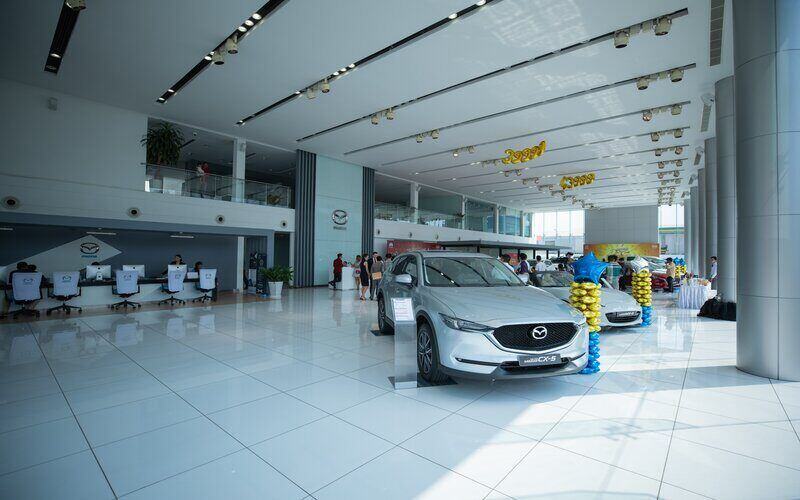According to data by Statista and released by the World Economic Forum, electric car sales almost doubled globally in 2020, and now account for more than 4% of all passenger vehicles worldwide.
Norway, Iceland and Sweden lead the way, with the former having a near 75% electric car market share and the latter having 32.2%.
Germany meanwhile grew its electric vehicle (EV) fleet by more than 260%, as did France by 202%.
Australia however continues to lag behind other countries, thanks in large part to its lack of EV infrastructure and government assistance to buy them.
The latest car sales data shows there were about 6,900 EVs sold in Australia in 2020, a 2.7% increase from 2019, with EVs accounting for 0.7% of total Australian car sales.
The United States by comparison now has 2.3% electric cars, and grew its fleet by 4%.
One of the key criticisms among EV advocates in Australia is not just the lack of government incentives, but what can often be described as governments making it harder to buy and use them.
As an example, the Victorian Government is introducing an electric vehicle road tax from July 2021, a tax of 2.5 cents a kilometre for full electric vehicles and 2 cents a kilometre for plug in hybrid vehicles.
Costing around $500 for an electric car that travels 20,000kms a year, Electric Vehicle Council (EVC) chief Behyad Jafari recently said Australia is a "uniquely hostile" market to electric vehicle (EV) uptake.
"Victoria is now doing what no other jurisdiction on earth does by discouraging people from buying electric vehicles by slugging them with a special tax," he said.
"When this policy idea gets pushed by the oil lobby around the world, they typically get laughed out of the room. Tim Pallas [Victorian Treasurer] cut them a key to his office.
"The federal government’s inaction is bad, but even they’re not destructive enough to actively discourage electric vehicle uptake with a new tax."
South Australia also has a road user charge for electric vehicles.
However, some say such taxes are necessary as the revenue from fuel steadily falls.
See also: Luxury car tax threshold gets bumped for 2020-21
Auto association calls for national vehicle tax, which includes electric cars
The fuel excise, currently 42.3¢ in tax on every litre of petrol and diesel sold at petrol stations, is said to be worth almost $50 billion to the Federal Budget over the next four years.
This tax is designed to help pay for things like road maintenance and infrastructure, and while it can help add to the cost of petrol for road users, the (slowly) falling numbers of petrol and diesel cars has raised the alarm for motoring bodies.
With a hodge-podge patchwork of different state and territory rules for fuel and electric vehicle taxes currently in place, The Australian Automotive Association (AAA) has called for “urgent national leadership and coordination” to deliver a nationally consistent road user charge.
In a submission for the May Budget, the AAA labelled the fuel excise as “an inequitable tax”, and instead argued for a distance-based road user charge.
This would, according to AAA, "avoid creating inconsistent tax systems that disincentivised the renewal of Australia’s passenger fleet while maximising the benefits of technological advances in motoring."
“The federal government has a leadership role in the reform of motoring taxation and the effective and sustainable transition to new vehicle technologies,” it says.
RACV senior engineer Nicholas Platt however agreed with the EV levy of 2.5 cents, saying it would be unlikely to discourage the uptake of zero-emissions vehicles.
“RACV has long advocated for a fairer, more efficient and transparent user-pays system to replace the current network of state and federal taxes”, he said.
“As the number of zero-emissions cars on our roads continues to grow, the EV tax will make up for lost fuel excise, so authorities can continue to fund and maintain Victoria’s roads."
Adrian Dwyer, chief executive of think tank the Infrastructure Partnerships Australia (IPA), said such a tax would eventually be necessary.
"Right now we raise about $11 billion per year through fuel excise, and that's in terminal decline with the greater fuel efficiency of vehicles," he said.
"As those dollars go, the money's going to need to come from somewhere to pay for roads."
Each of these groups however have called for more government investment to encourage EV uptake, such as the ACT government's free registration and interest-free loan scheme.
There are currently no cash incentives for buying electric vehicles offered by the federal government.
Other states rule out electric vehicle tax
The New Daily asked every state and territory government whether they had any intention of introducing a similar scheme to Victoria's EV road tax.
Western Australia, Tasmania and the Australian Capital Territory have either categorically ruled out or downplayed such a scheme.
Tasmania's government said it was “definitely not on our radar”, and Western Australia said it “does not propose the introduction of any road user charge for electric vehicles”.
Queensland and New South Wales said they were open to the idea and were currently looking into its feasibility, respectively.
Photo by CHUTTERSNAP on Unsplash



 Denise Raward
Denise Raward
 Harry O'Sullivan
Harry O'Sullivan

 Hanan Dervisevic
Hanan Dervisevic
 William Jolly
William Jolly

